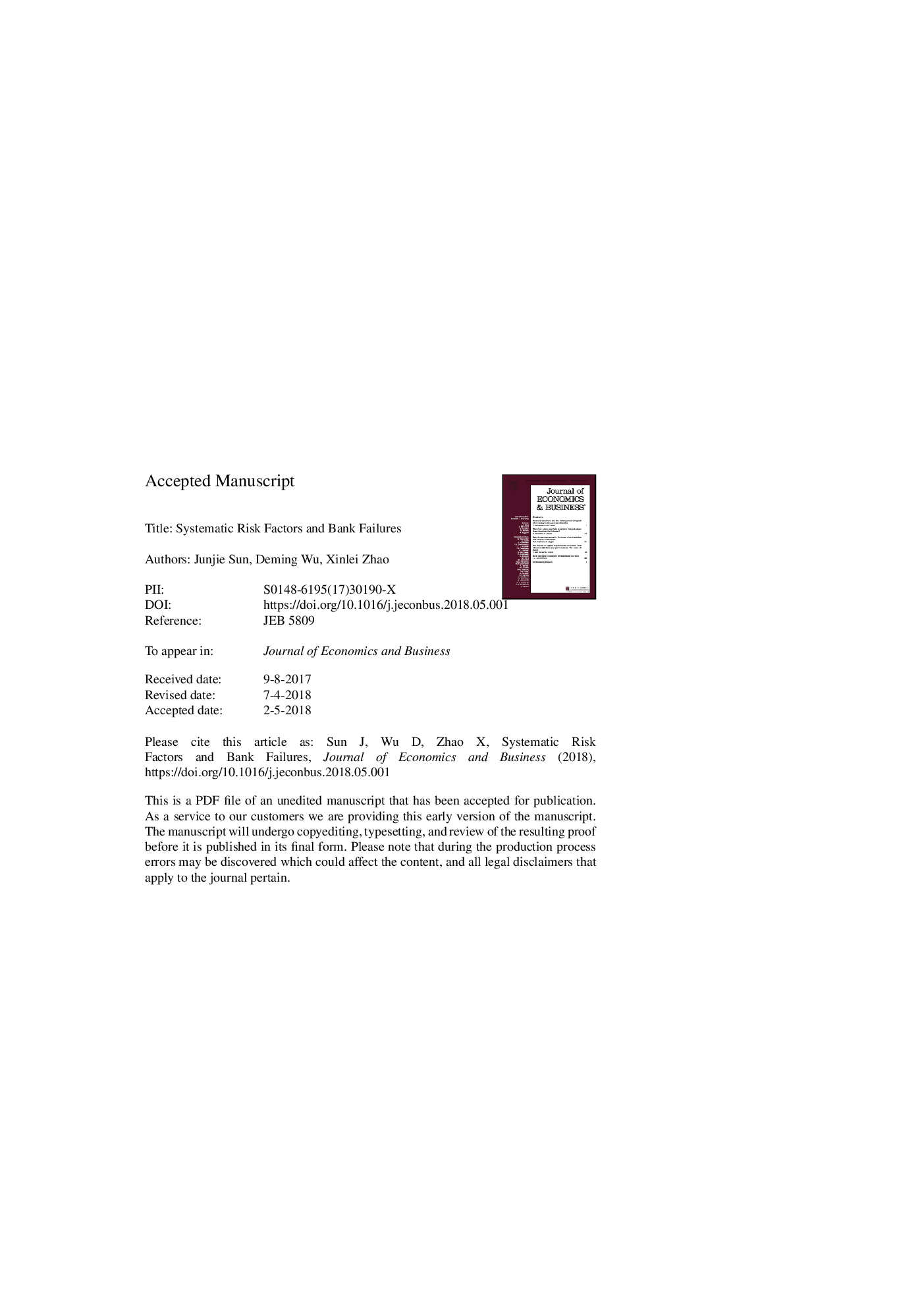| Article ID | Journal | Published Year | Pages | File Type |
|---|---|---|---|---|
| 7360091 | Journal of Economics and Business | 2018 | 47 Pages |
Abstract
We investigate the impact on bank failures of two systematic risk factors-the stress in the interbank funding market and conditions in the local housing market-in the two banking crises during the period from 1985 to 2011. We find that local housing market conditions had a stronger relation with bank failures during the first episode than during the second episode. By contrast, the interbank funding market condition only weakly helped to predict bank failures before 2005, but it had a very strong impact on bank failures during the latest banking crisis. Therefore, banking crises seemed to be driven by episode-specific risk factors. Accordingly, even though it is common wisdom at present that overall banking risk is more than just the sum of risks at the individual bank level and that macro-prudential overlay is important in bank regulation, finding the right systematic risk factors for the next banking crisis or correctly gauging their impact on bank failures might be challenging.
Keywords
Related Topics
Social Sciences and Humanities
Business, Management and Accounting
Strategy and Management
Authors
Junjie Sun, Deming Wu, Xinlei Zhao,
